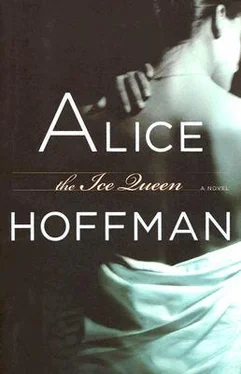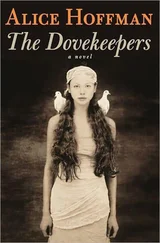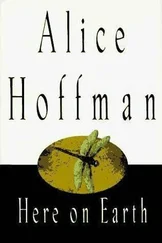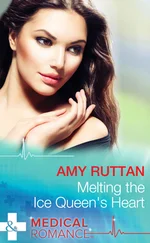Death says, but the doctor is a scientist through to his soul, a believer in order and in the rightness of things; he cannot accept this is the way the game of life and death is played. There have to be rules, and he is convinced that all he needs is to reverse Death’s direction. But when the doctor saves the girl he loves by turning her around to avoid her fate, Death scoops him up instead. Then and there. No explanations, just a single final act. A life for a life.
Is this the way the story ends? Not in Andersen’s tales surely, where right and might win out, but this is Grimm.
There is a single, simple rule to the game played between the doctor and Death, one the doctor-hero has ignored: When it comes to death, heads or tails matters not. There is no escape in the end.
It’s a sad tale, one that defies logic and thumbs its nose at any reasonable man’s attempt to impose order on the natural world. That my brother, of all people, would choose this obscure, dark story to read and reread was in itself a puzzle. I thought about the way he’d called to me when I’d stood out on the porch, watching our mother drive away. Turn around, that’s what he’d wanted me to do. If I had, would Death have passed us by?
Just when I thought my brother was determined to avoid me — I’d hardly seen him since my strike — he and Nina invited me to their house for a party. I’d been so taken aback when Ned called that I’d said yes when in fact I’d meant no . I couldn’t remember the last time I’d been to a party outside of events at the library in New Jersey, and I’d arranged all of them. I’d come to realize that I was comfortable speaking only to people who’d experienced disaster, at least in a secondhand way, like my physical therapist, Peggy, whom I occasionally met for coffee. And of course Renny, not that he was a friend, not even close. Now I’d gone and committed myself to a party of mathematicians and scientists.
It turned out to be an annual event, filled with professors and graduate students from both Nina’s and Ned’s departments. Getting there was a trial for me; I took one wrong turn after another on those curlicue roads that cut through the campus and all looked alike. I realized then, I hadn’t once been invited over to my brother’s house since my arrival in Florida, and I thought this strange. I wondered if my sister-in-law held something against me. Or maybe it was Ned.
The house my brother and Nina owned was modern, glass and stucco, set on a cul-de-sac on the far side of the Orlon campus — faculty housing of the highest quality. No wonder some of the best minds chose to teach at Orlon; life here was pleasant, a fact that rubbed me the wrong way. I could feel the numbness in my fingertips, the clicking in my head when I pulled up to park. In times of stress, my symptoms intensified. I got out of my car and walked up the neat path. Nice lawn. Nice flowers. I was thinking about Lazarus Jones. I shouldn’t have been, but after a week I was still burning. I could see happy graduate students through the bay window of Nina and Ned’s house. I felt as though I had arrived from an alternate universe. Call it New Jersey, call it desperation, call it whatever you like.
I went immediately to the bar set up in the den. I poured a large glass of red wine for myself, probably the good stuff. It looked like mud to me. While I was getting myself a drink, and then another, I could tell how devoted my brother’s students were to him; I overheard one say that Ned would be the head of the department when Dr. Miller, the current chair, retired. Several voiced their disappointment that Ned would be taking the next semester off from teaching, something I didn’t know, in order to concentrate on his research.
Nina’s students were more reserved, until they started in on the wine; then they were wild. They had a slew of drinking games with mathematical rules I couldn’t understand. They also seemed devoted, only more quietly so; I could see into the kitchen, where they had gathered around Nina as she dished out bouillabaisse, homemade, I was told, which shocked me. I had assumed someone as theoretical and removed as Nina wouldn’t know how to cook. But, of course, cuisine was probably just another equation to her: clams to tomato sauce, basil to pepper, rum to lemonade. My previous apathy toward my sister-in-law had turned into hostility. Why hadn’t she invited me here before, made her bouillabaisse for me? Perhaps she saw me as another project of my brother’s, one of many that took up time and energy with little or no return for his efforts.
I stayed out of the kitchen and close to the bar. One graduate student in meteorology took a fancy to me. He introduced himself and followed me around for a while. I was wearing the red dress again, that must have been it. The graduate student, Paul, had heard about my lightning strike and wanted to talk about my effects. Was I dizzy? Weak in the knees? Did I have migraine headaches? Lasting psychological effects? Would I like a bowl of bouillabaisse, a glass of punch? How was sex affected, this was what he yearned to know. Hotter? Colder? There was the myth of hypersexuality, duly noted, half believed. Would the rearrangement of my electrical impulses take my partner’s breath away, bring him closer to the brink of the world we knew?
This was a little too personal. I thought we’d speak of the weather, the heat, perhaps the student’s classwork, not the edge of the known world. I spied my brother across the room. I almost didn’t recognize him. He looked older, unkempt, thinner. Had I not noticed that he’d lost most of his hair, that his shoulders slumped? Yet he seemed to be enjoying himself. He was talking with several other professors, laughing at someone’s joke. I wondered if he’d found happiness in logic, in this well-ordered world created from scratch in a land where there was no ice. Perhaps Death stood outside the windows in Orlon. Perhaps he couldn’t get through the glass.
I excused myself and left the graduate student to his own kind. The bar had only beer and wine, and I needed something stronger to get through the evening. I went into the kitchen, found the liquor cabinet, and poured myself a whiskey. My grandmother had liked whiskey now and then, and I had sometimes joined her in a drink. Tea and whiskey, our cocktail of choice. We liked to sit in the parlor and watch snow fall; we played “I spy with my little eye” long after her vision was failing and I was far too old for such games. Now I raised my glass and drank to my grand-mother’s memory. Someone who had loved me in spite of everything, no matter who and what I was.
It was because of the way I missed my grandmother that I drank the whiskey so fast, then turned to the window when I did. It was because I was a failure in each and every thing I undertook, including being a guest at a dinner party, that I happened to spy someone standing in the grass. Was that chaos theory, or simply chaos? If an ice age could be triggered by trivial shifts in the earth’s orbit, what might be wrought by a woman in tears? It was dark in the yard, and at first I thought I was seeing a statue. She was wearing a white dress, and she wasn’t moving. But it was Nina, my brother’s wife, the mathematician, weeping.
After a moment, Nina saw me through the glass. I think she opened her mouth. She was gulping down air, in a panic. I thought of Death, unable to take those who were turned from him. I did exactly that. I quickly turned my back to her. Perhaps I could pretend I hadn’t seen her. Perhaps she could pretend as well. Wasn’t that the way most people went about their lives? Put it in a box, tie it up tight, walk away. Please, oh please, let’s do.
In the living room the students were devouring the refreshments. Who would have expected them to be so hungry? French bread, cheeses, white snowy berries that were most likely strawberries, punch, champagne, plenty of beer. The guests were cheerful — not gloomy and serious, as I had expected. Weren’t they all researching the end of the known universe, the end of the numerical continuum, continually trying to make sense out of columns of figures that refused to cooperate? Shouldn’t these students be glum, desperate? Shouldn’t they realize what little sense there was to be made of this world?
Читать дальше












